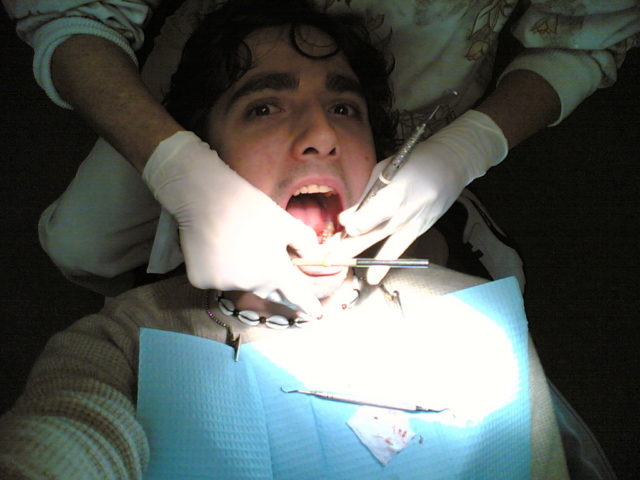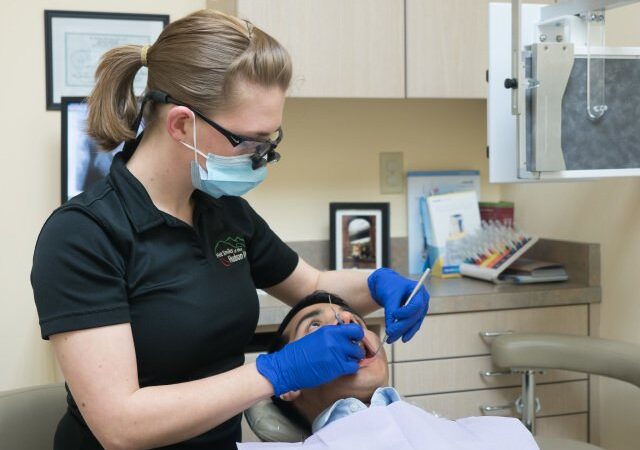Dental emergencies can strike unexpectedly, causing pain, discomfort, and anxiety. While you can’t predict when a dental emergency will happen, you can prepare for one. Knowing what to do in the event of a dental emergency can make a significant difference in the outcome. In this blog post, we’ll explore common dental emergencies, provide essential tips for dental emergency preparedness, and guide you on what to do when immediate care is needed.
Common Dental Emergencies
Dental emergencies encompass a range of situations that require immediate attention from a dentist. Here are some of the most common dental emergencies:
1. Toothache
A severe toothache can be caused by various factors, including tooth decay, infection, or a dental injury. The pain may be sharp, throbbing, or constant, and it can significantly disrupt your daily life.
2. Knocked-Out Tooth (Avulsed Tooth)
A knocked-out tooth can result from a sports injury, accident, or other traumatic event. Quick action is essential to save the tooth, as the chances of successful re-implantation decrease with time.
3. Broken or Cracked Tooth
A cracked or broken tooth can be caused by biting into something hard, trauma, or untreated decay. A fractured tooth can be painful and may expose the sensitive inner tissues.

4. Dental Abscess
A dental abscess is a painful pus-filled pocket that forms at the root of a tooth or in the gum tissue. It can lead to severe pain, swelling, and fever.
5. Lost Filling or Crown
A lost filling or crown can expose the tooth to sensitivity and discomfort. It’s crucial to seek immediate care to protect the tooth from further damage.
6. Soft Tissue Injuries
Injuries to the lips, cheeks, tongue, or gums can result from accidents or falls. These injuries can cause bleeding and significant pain.
Dental Emergency Preparedness Tips
Being prepared for a dental emergency can help you act quickly and effectively when one occurs. Here are some dental emergency preparedness tips to keep in mind:
1. Know Your Dentist’s Contact Information
Have your dentist’s contact information readily available. Save their office number, emergency line (if available), and address in your phone or write it down in an easily accessible place.
2. Create a Dental First Aid Kit
Consider assembling a dental first aid kit that includes essential items like sterile gauze, a small container with a secure lid, over-the-counter pain relievers (following dosage instructions), and a dental mirror. This kit can be especially helpful for knocked-out teeth and minor injuries.
3. Learn Basic First Aid
Familiarize yourself with basic first aid procedures, such as how to stop bleeding, clean wounds, and provide initial care for soft tissue injuries. This knowledge can be invaluable in a dental emergency.
4. Educate Your Family
Ensure that your family members, especially children, know what to do in case of a dental emergency. Teach them how to contact their dentist or seek immediate medical attention when needed.
5. Wear a Mouthguard
If you or your children participate in contact sports or activities with a risk of dental injury, consider wearing a mouthguard. Custom-fitted mouthguards from your dentist offer the best protection.
6. Stay Calm
In the event of a dental emergency, it’s crucial to stay calm. Panic can make the situation more challenging to handle. Take deep breaths and focus on taking the necessary steps.
What to Do in a Dental Emergency
When a dental emergency strikes, knowing what to do can make a significant difference in the outcome. Here’s a step-by-step guide on what to do in common dental emergency scenarios:
1. Toothache
- Rinse your mouth with warm water to clean it.
- Floss gently to remove any trapped debris that might be causing the pain.
- Avoid placing aspirin or other pain relievers directly on the gum or tooth, as this can damage the soft tissues.
- Contact your dentist to schedule an appointment for evaluation.
2. Knocked-Out Tooth (Avulsed Tooth)
- Retrieve the tooth by holding it by the crown (the top part) and avoid touching the root.
- Rinse the tooth gently with clean water if it’s dirty but do not scrub or remove any attached tissue.
- If possible, place the tooth back into the socket immediately, or keep it in a container of milk or saliva.
- Seek immediate dental care within 30 minutes for the best chance of re-implantation.
3. Broken or Cracked Tooth
- Rinse your mouth with warm water to clean it.
- If there is bleeding, apply a piece of gauze to the area with gentle pressure.
- Contact your dentist for an appointment as soon as possible.
4. Dental Abscess
- Rinse your mouth with warm saltwater to help reduce pain and draw out some of the infection.
- Contact your dentist immediately for evaluation and treatment.
5. Lost Filling or Crown
- If you still have the filling or crown, clean it and try to reattach it using dental cement or over-the-counter temporary dental adhesive.
- If the restoration is lost, place a piece of sugar-free gum or dental wax over the tooth to protect it.
- Contact your dentist to schedule an appointment for replacement or repair.
6. Soft Tissue Injuries
- Rinse your mouth with warm saltwater to clean the injured area.
- Apply pressure with sterile gauze to stop any bleeding.
- If the bleeding persists or the injury is severe, seek immediate medical attention or visit the emergency room.
Conclusion: Be Prepared and Act Quickly
Dental emergencies can be distressing, but being prepared and knowing how to respond can make all the difference. Remember that quick action can help preserve teeth and reduce pain and discomfort with comprehensive dental services Tirunelveli. Dental emergency preparedness, along with regular dental check-ups and good oral hygiene, is an essential part of maintaining your oral health and overall well-being.

